The Wallabies were meant to prove they’re back. But instead they have gone backwards
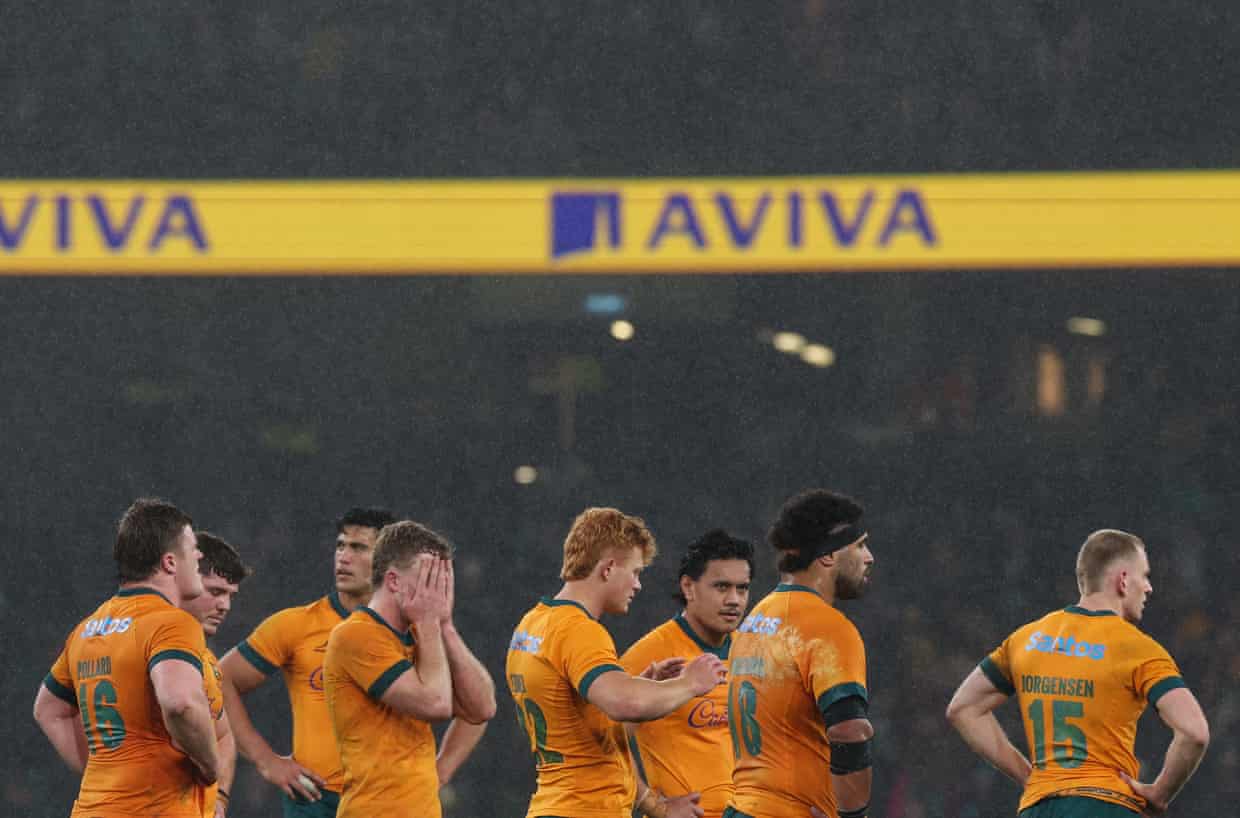
Three weeks ago, Australia arrived in Europe self-assured and quietly confident of taking a few prized scalps.And why not? They had come within a single refereeing call at the breakdown of claiming a British & Irish Lions series win.They had hammered the world champion Springboks in Johannesburg.They had shown great chutzpah to beat Argentina after the hooter and they still carried the glow of last November’s win over England.This was a side developing shape and steel, a side capable of the sublime, a side beginning to coax long-dormant fans back to the code while tempting home several stars who had crossed to rugby league.
This tour was supposed to confirm, unequivocally, that the Wallabies were back.Instead, they’ve gone backwards after a sorry performance against Ireland in Dublin where they received a 46–19 shellacking that still managed to flatter them on the scoreboard.This result also confirms their status as a B-tier rugby team.No matter what happens against France in Paris next week, they will leave Europe ranked outside the top six on World Rugby’s charts, consigning them to the second pot when the 2027 World Cup draw takes place next month.The implications are stark: if the Wallabies want to reach the latter stages of their own tournament on home soil, they will have to knock over one of the giants, a task that, on current evidence, feels well beyond them.
Too often in Dublin they looked like a side searching for someone else to take control: to claim the high ball, to marshal the defensive line, to calm a frantic moment, to dictate where the next five minutes should be played.Ireland didn’t overwhelm them physically or tactically.They simply leaned on the most obvious pressure points – contestable kicks, structured phase play, tempo changes – and trusted that the Wallabies would crack first.And they did.Australia coughed up possession from their own lineout on six occasions – four times inside Ireland’s 22.
Their ineptitude under the high ball has only worsened after similar struggles against England and Italy over the past fortnight,They’re playing like a team that has run out of energy, which is deeply concerning given they should be entering a new chapter as they gear up for that home World Cup in less than two years,What on earth are they going to do between now and then?First things first: they need to back someone, anyone, at fly-half,James O’Connor is a supremely gifted athlete,He looks the part too.
His socks are down around his ankles, his angular jaw barks instructions to teammates as his sinewy arms wave about.But he is not the metronome this team requires.His inability to marshal the backline into something resembling a cohesive structure was telling.Not that this is O’Connor’s fault.In an ideal world, the 35-year-old who made his Test debut 17 years ago would have been watching this match like the rest of us.
But Tane Edmed is far from the finished product, and Carter Gordon, while rediscovering his groove in the code, is sidelined with a neck injury.What Schmidt would give for a player like South Africa’s Handré Pollard or England’s George Ford, two fly-halves who have copped their share of criticism for lacking razzle-dazzle, yet provide the one quality Australia are crying out for: control.Australia already have plenty of excitement and instinct and broken-field brilliance.What they’re missing is a first receiver who dictates the tempo of a Test match, who can put his studs on the ball and slow things down, who can take the sting out of the contest rather than add to the chaos.Under Schmidt, Australian rugby is steadier, but still too dependent on the sting.
For Schmidt, this is a version of José Mourinho’s undersized blanket problem: tug the defence into shape and the attack loses fluidity; focus on structure and the spark disappears; lean on spark and the control evaporates,Every time Australia cover one area, another is left exposed,Sign up to Australia SportGet a daily roundup of the latest sports news, features and comment from our Australian sports deskafter newsletter promotionThe cruel irony is that this team’s ceiling remains genuinely high,But the floor keeps dropping out from beneath them,They don’t need to reinvent themselves, they need reliability, leadership and a spine that doesn’t buckle under pressure.
The tour was supposed to be a statement of intent,Instead, it has served as a sobering reminder of how far behind the leading nations Australia still sit,Schmidt will speak of learnings and combinations and growth – and some of that will be true – but he knows better than anyone that this team requires more than incremental improvement,It needs identity, clarity and, crucially, a fly-half who can turn talent into Test-match shape,In the end it’s the clarity that will hurt most.
Australia are not on the cusp of something; they are adrift from it.The raw materials are there, but the polish, the precision, the ruthlessness that defines the very best sides remains absent.
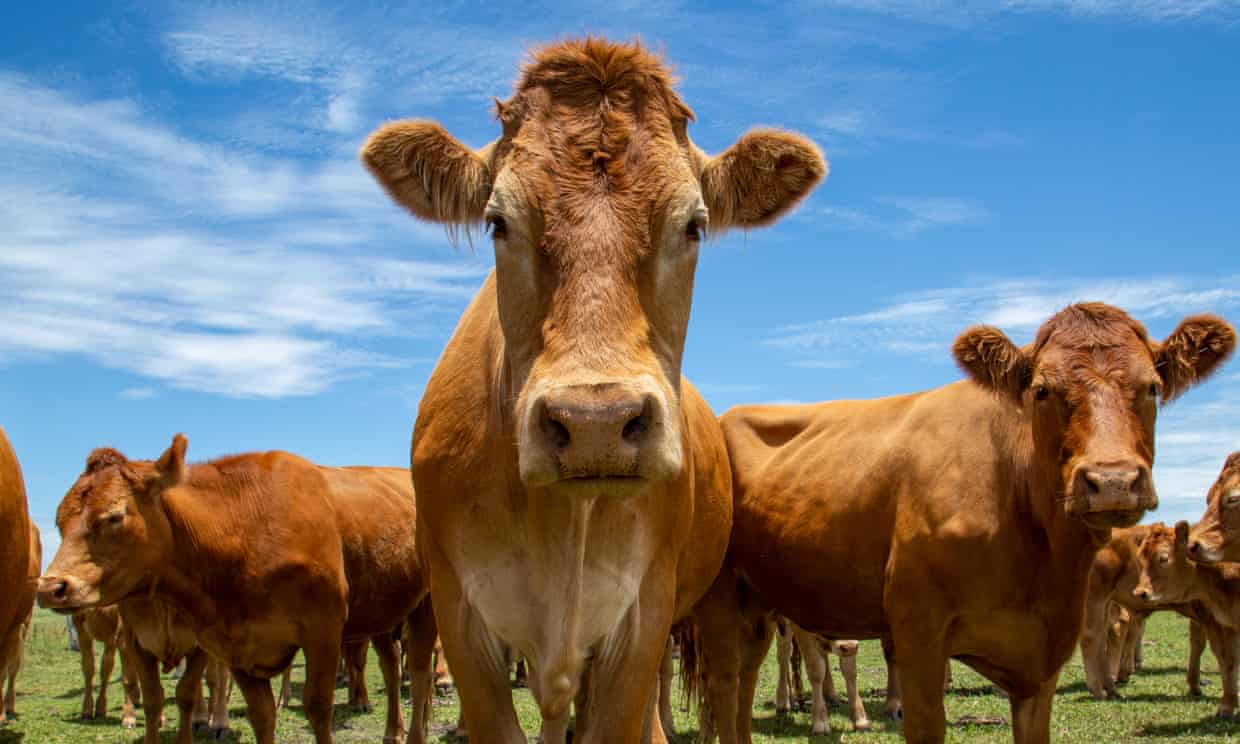
Australia welcomes Trump’s removal of tariffs on beef and other food imports
The Australian government has welcomed the Trump administration’s removal of tariffs on beef and other agricultural exports to the US.After previously insisting his import duties were not fuelling inflation, the US president, Donald Trump, on Saturday morning Australian time signed an executive order reversing tariffs on food imports, including beef, coffee and bananas.Trump, who is facing pressure over rising consumer prices, conceded in the order that “current domestic demand for certain products, and current domestic capacity to produce certain products” had influenced the decision.Last year, meat was Australia’s second largest export to the US, behind only non-monetary gold. Since Trump’s tariff regime came into effect in April, Australian producers have been charged a 10% export duty on most goods, including beef
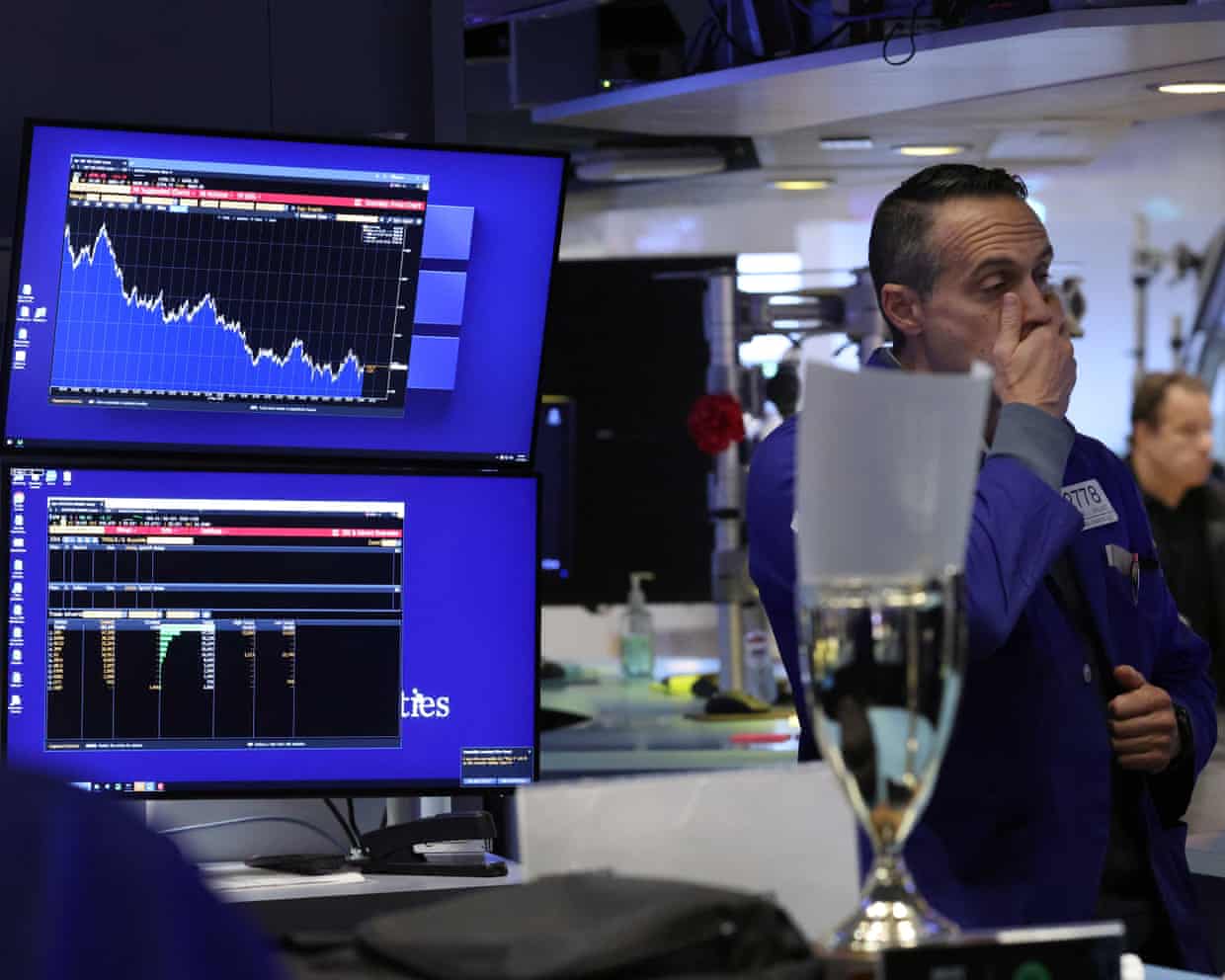
Global markets struggle after tech sell-off and fears over Chinese economy
Global markets suffered another day of volatile trading after a tech sell-off that fuelled Wall Street’s worst day in a month and weak economic data from China showed an unprecedented slump in investment.The FTSE 100 fell by 1.1% in London, closing down about 100 points at 9,698, as bellwether banking stocks tumbled. Barclays, Lloyds and NatWest slumped between 2.7% and 3

China voices ‘extreme disappointment’ with Dutch minister at centre of car chip row
The Chinese government has expressed “extreme disappointment” with the Dutch minister at the heart of a row over chip supply to the car industry.A spokesperson for the ministry of commerce was responding to a Guardian interview with Vincent Karremans on Thursday in which the politician described the standoff between China and the European Union as a “wake-up call” for western leaders.The spokesperson said: “China has noted the recent remarks made by Dutch minister of economic affairs Karremans in media interviews. China expresses extreme disappointment and strong dissatisfaction with such remarks that confuse right and wrong, distort facts and persist in a single-minded course.“The profound lesson this semiconductor supply chain crisis has taught the world is that administrative measures should not be used to improperly interfere with corporate operations
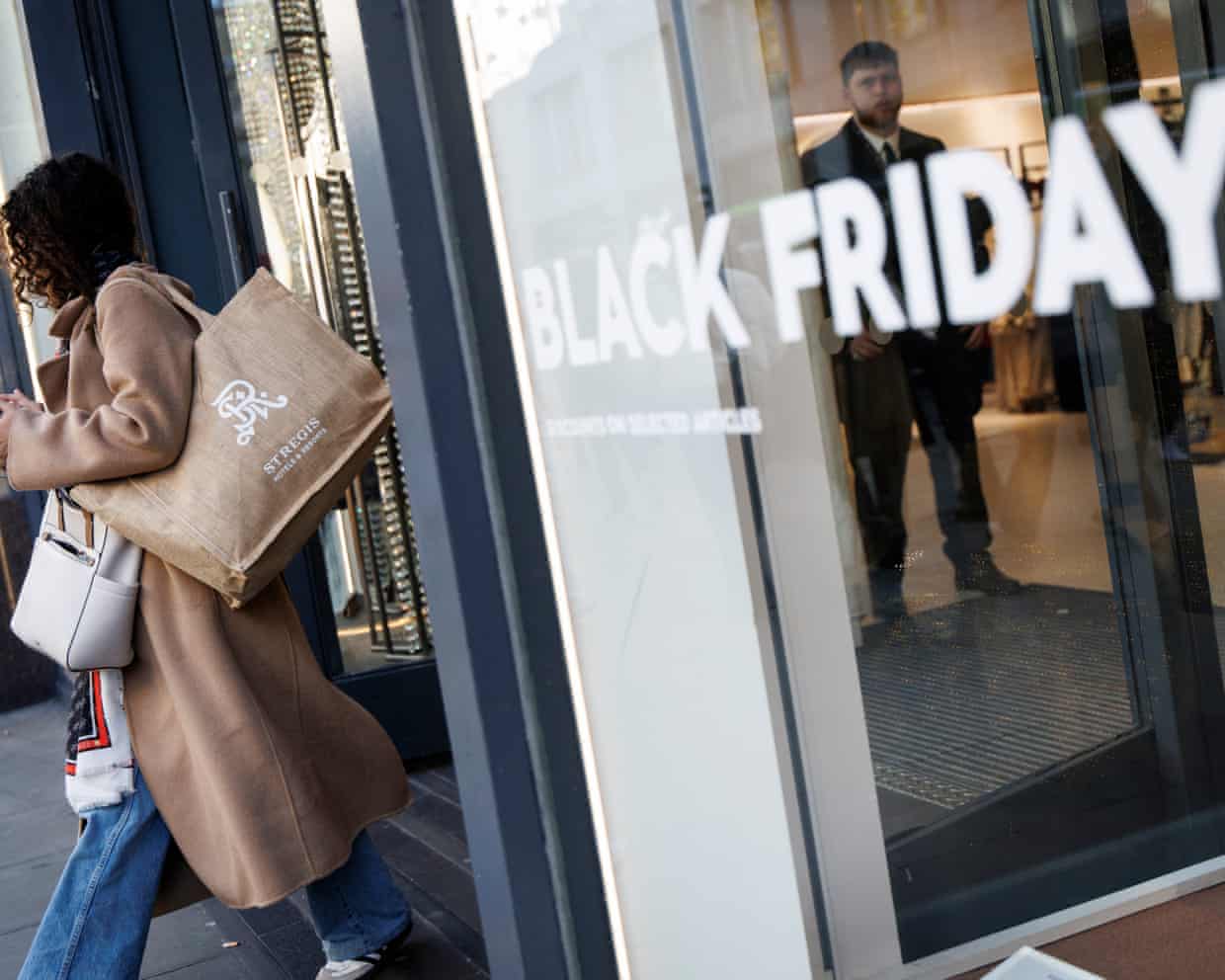
People in the US: how are your holiday shopping plans being affected by Trump’s tariffs and the cost of living?
We’d like to find out more about your holiday spending plans this year. The New York Times reported on Friday that the Trump administration is pivoting to an affordability message and considering lowering some tariffs rates.The administration has floated policies that would lower prices for coffee and fruit, spoken about a 50-year mortgage proposal, and Trump has mused on social media about giving Americans $2,000 funded by tariff revenue.A Harris poll from September found that 74% of Americans said their monthly household costs had gone up by more than $100.We want to hear from you
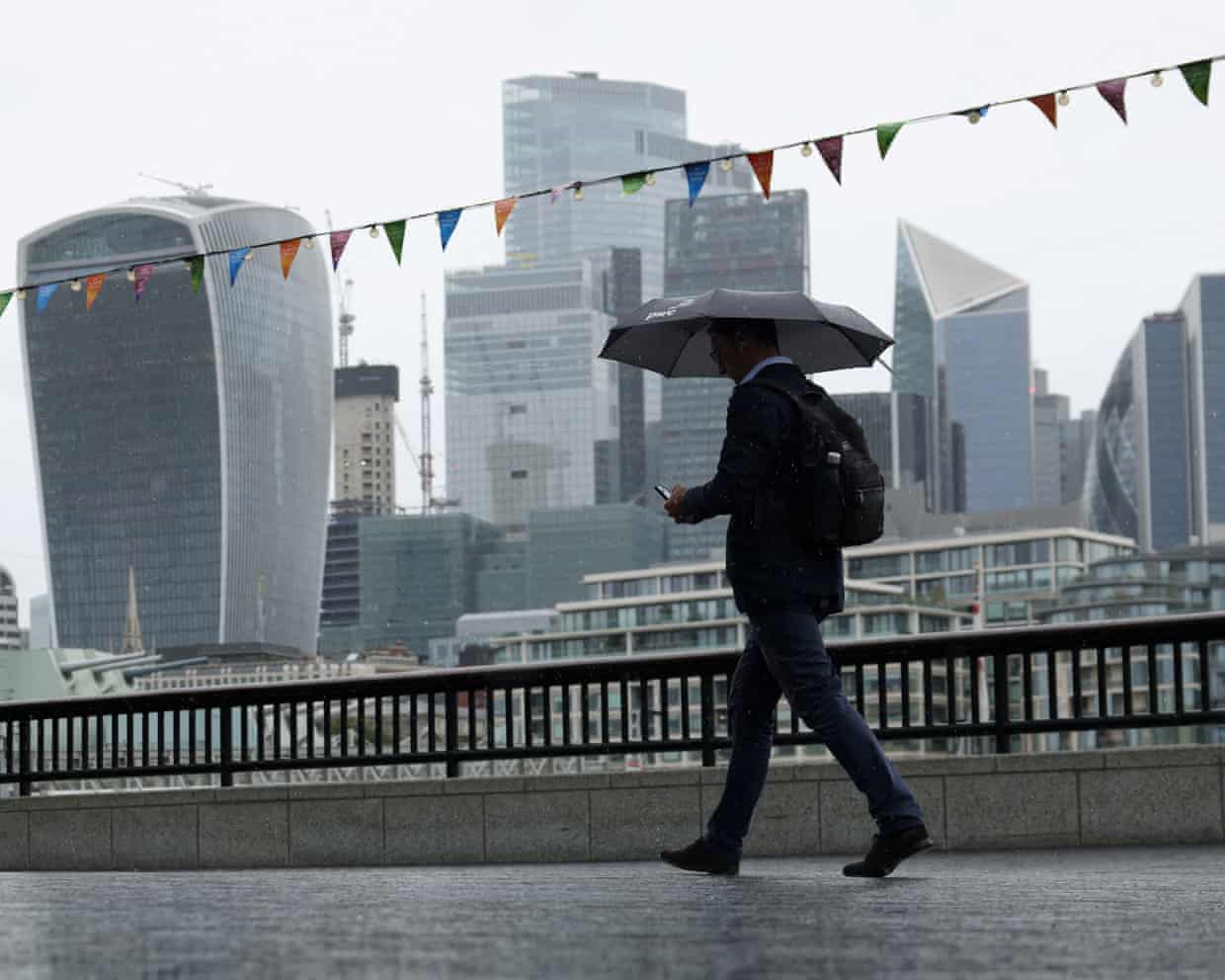
Reeves’s plan to ditch income tax rise prompts government bond sell-off
UK bond markets took fright on Friday after it emerged that Rachel Reeves had ditched plans for a manifesto-busting increase in income tax at this month’s autumn budget.On a day of choppy trading in the City, the cost of UK government borrowing rose by the most in a single day since early July, when a tearful appearance by Reeves in parliament spooked investors.The yield – in effect the interest rate – on 10-year government bonds, which are known as gilts, jumped by more than 0.13 percentage points to trade at about 4.575%, the highest level in a month
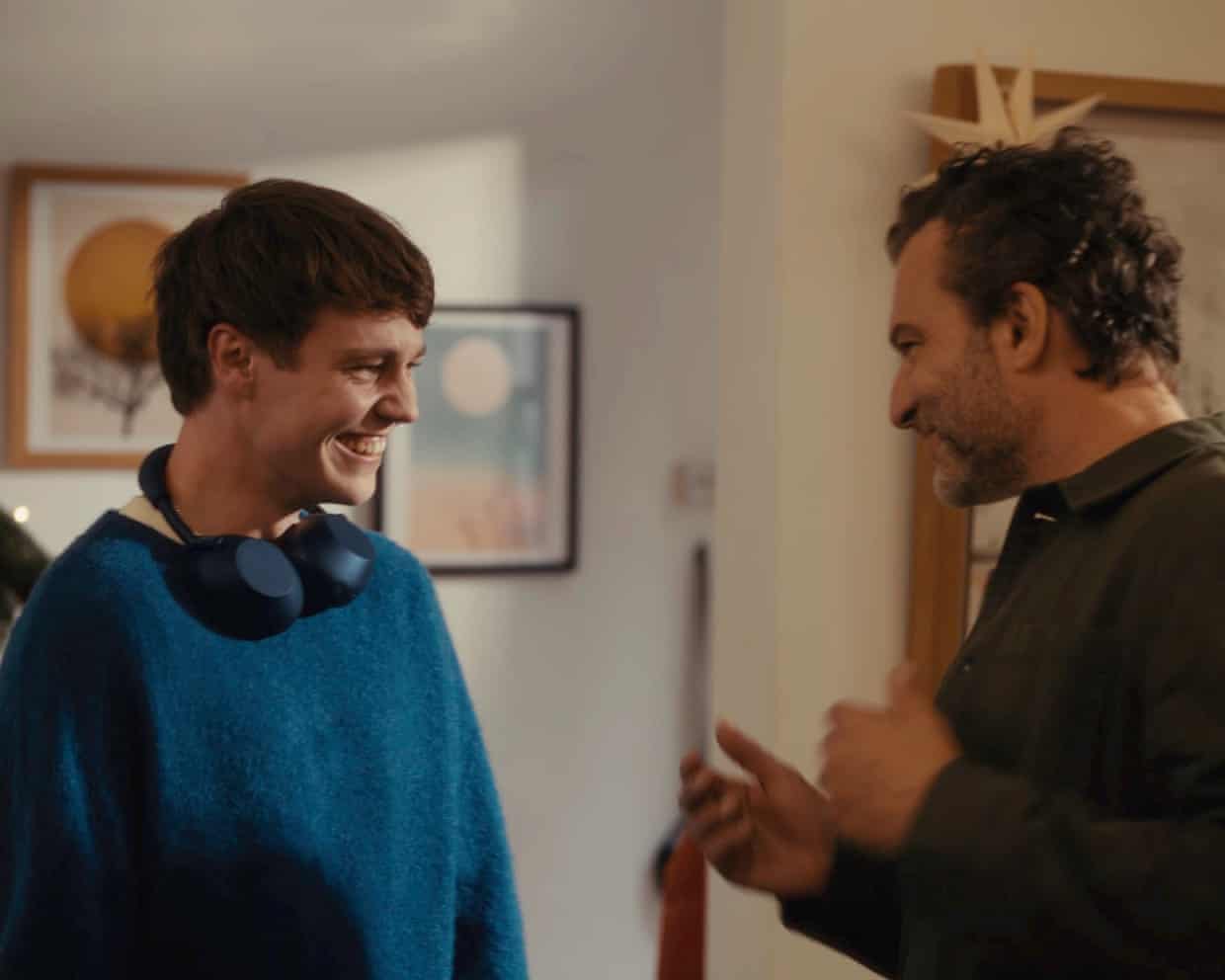
’Tis the season for dubious TV adverts | Letters
The issues you highlighted in your editorial are real, but please don’t think that advertisers care about them (The Guardian view on the John Lewis Christmas ad: a modern story of fathers and sons, 7 November).This ad is a shameless attempt to make consumers think they are doing something worthwhile in buying overpriced gifts in a failing store that used to share its profits with staff but hasn’t paid them any bonus in the past few years.If anything, the relentless pressure of advertising (where the Christmas season starts earlier each year) only serves to pile more pressure on people who are struggling. The cynicism of these ads – pretending to care while desperately trying to trigger the Pavlovian Christmas shopping response – is truly depressing.Chris LinwardSalford Your editorial’s claim that the new John Lewis Christmas ad was “harking back to the 1990s” and evoked “a less complicated time to be a young man” would be news to anyone who remembers that time as the era of laddism and Loaded, and the underlying unease about men’s emotional lives as shown in novels such as Tim Lott’s White City Blue and Nick Hornby’s About a Boy

Palliative care and choice must be at the heart of the assisted dying debate | Letters
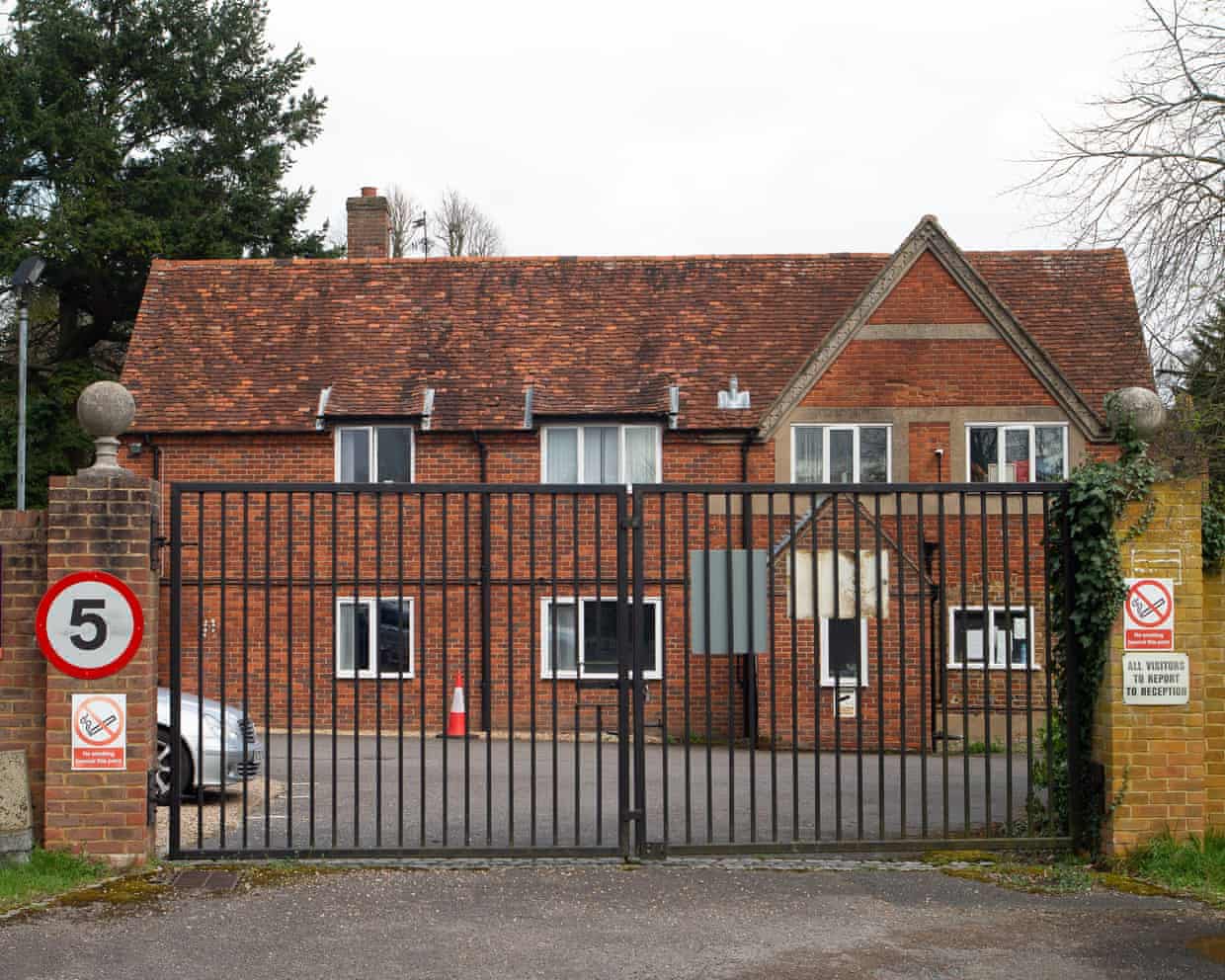
Sectioned children face more trauma in the institutions supposed to protect them | Letter

Maureen McGinley obituary

UK hospitals bracing for once-in-a-decade flu surge this winter

Resident doctors begin five-day strike in latest walkout over pay
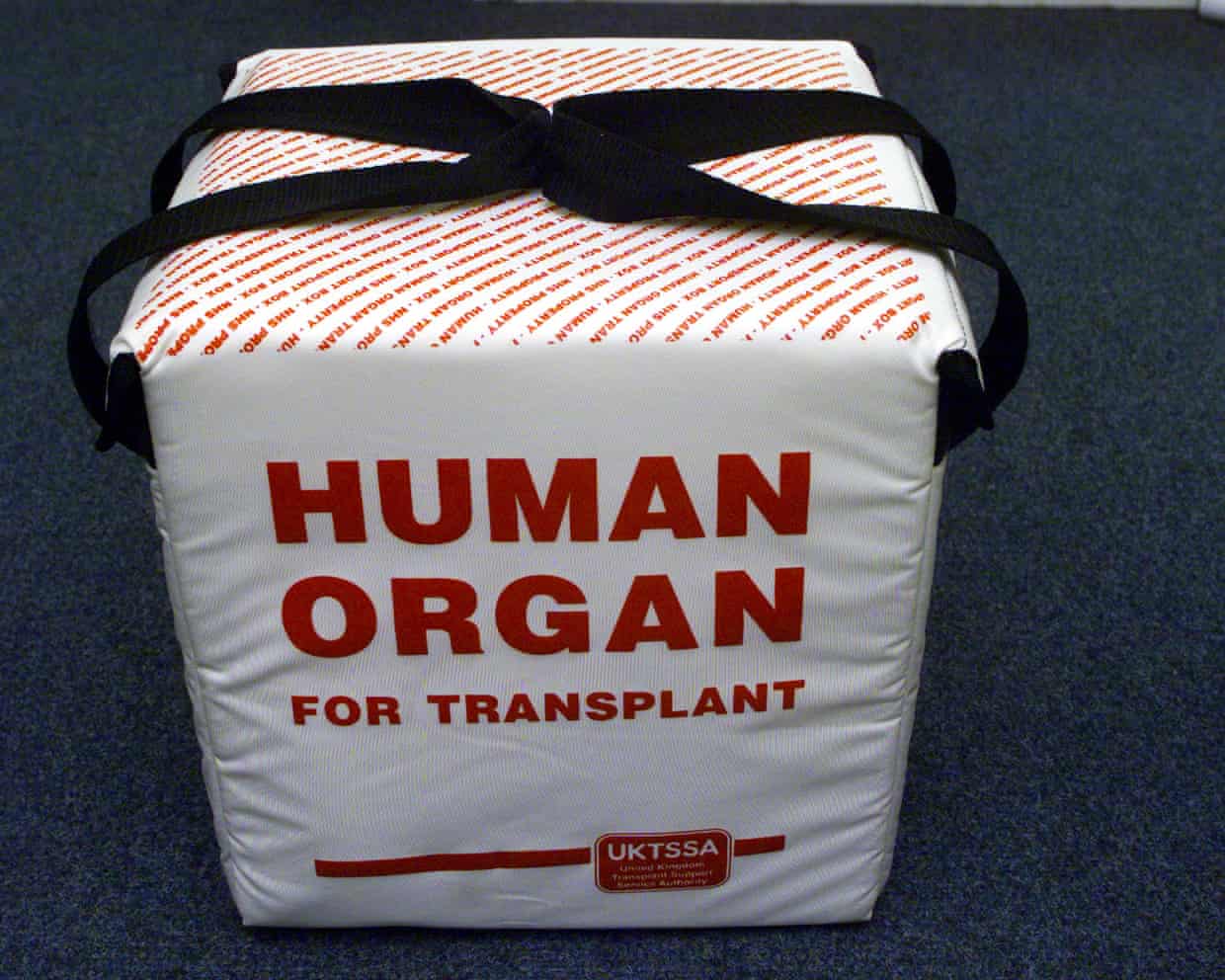
New AI tool could cut wasted efforts to transplant organs by 60%